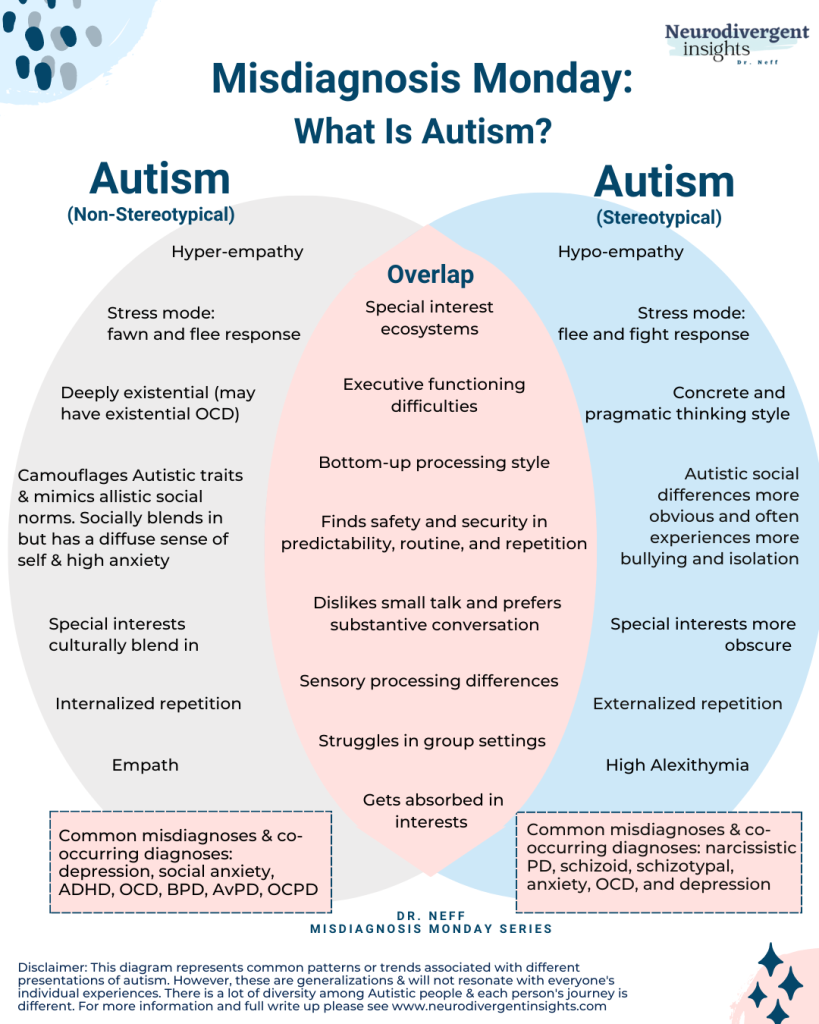Diagnosing autism in people in Australia creates unique challenges and considerations that reflect the changing understanding of the selection and the diverse wants of individuals. Unlike childhood diagnoses that always rely on early developmental prints, person autism diagnosis involves realizing refined behavioral designs, interaction variations, and social difficulties that might have been camouflaged within the years. The procedure needs a comprehensive and culturally painful and sensitive approach that acknowledges the diverse skills and experiences of people seeking assessment.
Australia’s diagnostic construction for person autism is influenced by globally recognized standards including the Diagnostic and Mathematical Manual of Psychological Problems (DSM-5) and the International Classification of Disorders (ICD-10). But, experts completing assessments in Australia are prompted to adopt a person-centered, strengths-based perspective that thinks an individual’s unique neurodiversity and cultural context.
Accessibility to diagnostic services is a crucial aspect of the Australian landscape, and attempts are being made to handle disparities in access to assessments across regions. Urban areas typically have significantly more assets and particular experts, while rural and distant areas may possibly face problems in providing reasonable and extensive diagnostic services. Increasing attention and creating diagnostic capacity in underserved parts stay central factors for improving accessibility.
The diagnostic process typically involves a multidisciplinary staff, including medical psychologists, psychiatrists, speech pathologists, and occupational therapists. That collaborative method ensures a holistic examination that views cognitive capabilities, language proficiency, sensory sensitivities, and intellectual health factors. Moreover, specialists are increasingly realizing the importance of involving people in the diagnostic method, valuing their self-reported activities and insights.
Social competence plays an essential position in the diagnostic journey for adults seeking review in Australia. Indigenous Australians, culturally and linguistically varied neighborhoods, and persons from various skills need tailored techniques that accept the influence of culture on appearance and notion of autism. Specialists are prompted to participate in continuing social competency instruction to ensure a nuanced knowledge of diverse perspectives.
Late-diagnosed people may possibly experience distinctive difficulties as they steer the complicated emotions and modifications that come with understanding their neurodivergent identity. The diagnostic trip often runs beyond the review it self, concerning post-diagnostic help, including counseling, psychoeducation, and the progress of coping strategies tailored to the individual’s skills and challenges.
The acceptance of gender diversity within the autism variety is yet another evolving facet of examination in Australia. Standard diagnostic requirements, that have been historically based on mostly male presentations, may not catch the various words of autism in girls and people with diverse gender identities. Initiatives are underway to improve diagnostic methods and increase recognition of the unique activities of autistic persons over the sexuality spectrum.
Study and advocacy enjoy important functions in surrounding the continuing future of adult autism diagnosis in Australia. Continuous studies contribute to a deeper knowledge of the prevalence, experiences, and needs of people on the spectrum. Advocacy understanding autism in adults , equally national and regional, work towards destigmatizing autism, raising consciousness, and influencing plan changes that prioritize the addition and well-being of autistic people in Australian society.

In conclusion, detecting autism in adults in Australia involves a vibrant and person-centered strategy that acknowledges the individual’s special benefits, difficulties, and cultural context. The continuing efforts to boost accessibility, cultural competency, and awareness contribute to a more inclusive and loyal environment for people seeking examination and moving their neurodivergent identities in the Australian context.
